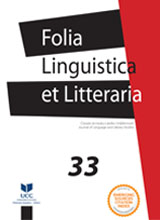REVISITING IBSEN'S HEDDA GABLER THROUGH DURKHEIM’S SOCIOLOGICAL SUICIDE: A BODY TO END THE DOOM OF ORGANIC SOLIDARITY
REVISITING IBSEN'S HEDDA GABLER THROUGH DURKHEIM’S SOCIOLOGICAL SUICIDE: A BODY TO END THE DOOM OF ORGANIC SOLIDARITY
Author(s): Mohammed Hussein Oroskhan, Asghar MoulavinafchiSubject(s): Studies of Literature, Sociology, Health and medicine and law
Published by: Filološki fakultet, Nikšić
Keywords: Sociology; Suicide; Egoistic Suicide; Hedda Gabler
Summary/Abstract: The debate over Henrik Ibsen's Hedda Gabler sometimes constitutes the belief that all of the interpretations over the play should be learned from a feministic perspective. Closer readings of Ibsen's play noting Georg Brands' categorization of Ibsen's plays and Peter Wessel Zapffe's exceptional perspective spurred a new reading of Ibsen's Hedda Gabler in our mind. Hence, a discussion of it in relation with sociological issues is proved to be highly effective in dissecting different layers of meaning from Hedda Gabler's tragic ending. As such, Emile Durkheim's sociological model of suicide is recommended as a reliable platform to become the mainstay of the Ibsen's Hedda Gabler's discussion. Under the purview of sociological issues, Ibsen's Hedda plays the role of a literary description of an individual entangled in the modern world unavoidably committing suicide to free herself from the limitations of the modern world
Journal: Folia Linguistica et Litteraria
- Issue Year: 2020
- Issue No: 33
- Page Range: 83-99
- Page Count: 17
- Language: English

